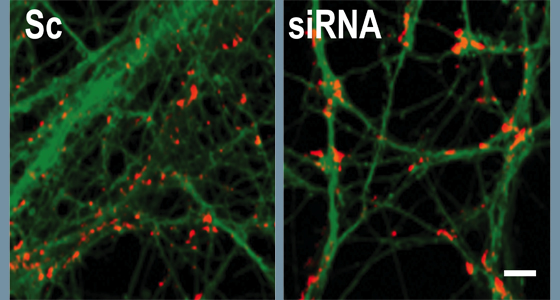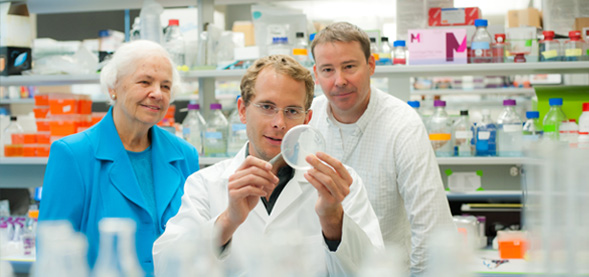 Progranulin deficiency decreases gross neural connectivity but enhances transmission at individual synapses
Progranulin deficiency decreases gross neural connectivity but enhances transmission at individual synapses
Authors: Cynader M, (Departments of Neurosurgery and Ophthalmology and Brain Research Centre, UBC), S Tapia L, Milnerwood A, Guo A, , Yoshida E, Vasuta C, Mackenzie IR, Raymond L, Cynader M, Jia W, Mills F, Bamji SX.(University of British Columbia, Vancouver), Lab of Shernaz Bamji,Cell and Developmental Biology Research Group,Department of Cellular & Physiological Sciences
Published in The Journal of Neuroscience, 3 August 2011, 31(31):11126-11132; doi:10.1523
Abstract:Frontotemporal dementia (FTD) has been linked to mutations in the progranulin gene (GRN) that lead to progranulin (PGRN) haploinsufficiency. Thus far, our understanding of the effects of PGRN depletion in the brain has been derived from investigation of gross pathology, and more detailed analyses of cellular function have been lacking. We report that knocking down PGRN levels in rat primary hippocampal cultures reduces neural connectivity by decreasing neuronal arborization and length as well as synapse density. Despite this, the number of synaptic vesicles per synapse and the frequency of mEPSCs are increased in PGRN knockdown cells, suggesting an increase in the probability of release at remaining synapses. Interestingly, we demonstrate that the number of vesicles per synapse is also increased in postmortem brain sections from FTD patients with PGRN haploinsufficiency, relative to controls. Our observations show that PGRN knockdown severely alters neuronal connectivity in vitro and that the synaptic vesicle phenotype observed in culture is consistent with that observed in the hippocampus of FTD patients.




